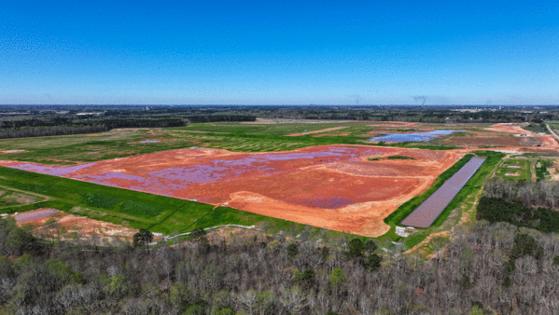Rivian receives conditional $6.6-billion federal loan for plant, new models
Published in Business News
California-based electric vehicle maker Rivian has received conditional approval for a federal loan of up to $6.6 billion that would help fund construction of a Georgia plant where it could manufacture smaller and more affordable SUVs.
The company said late Monday that the loan from the U.S. Department of Energy's Advanced Technology Vehicle Manufacturing Loan Program would support construction of a plant outside Atlanta that Rivian halted work on this year after losing $5.4 billion in 2023.
"This loan will help create thousands of new American jobs and further strengthen U.S. leadership in EV manufacturing and technology," Rivian founder and Chief Executive RJ Scaringe said in a prepared statement.
Rivian said it "must satisfy certain technical, legal, environmental, and financial conditions" before the department gives final approval and funds the loan.
Shares of Rivian were up 4% to $12.06 in early afternoon trading.
The funding comes just weeks after Rivian and Volkswagen Group entered into a joint venture that could deliver as much as $5.8 billion to the electric vehicle maker, which is supplying the German company electronic and computer components for its own electric vehicle program.
The venture significantly boosted the finances of Rivian, which went public in 2021 amid strong investor interest in EV makers, but the market has been slowed by higher interest rates and other challenges. Rivian also has struggled with supply issues and production.
The company cut 10% of its 16,700-plus workforce earlier this year and recorded a net loss of $1.1 billion, or $1.08 a share, in the third quarter. It employed about 2,200 locally in 2023, according to the Orange County Business Journal.
The loan was approved by the Energy Department in the waning days of the Biden administration, whose 2022 Inflation Reduction Act set aside some $500 billion to boost clean energy and make other investments in the economy. The administration's announced goal has been to have half of all cars sold nationally be electric by 2030.
President-elect Donald Trump has said he wants to pull back any unspent funds of the act, but the law has drawn bipartisan support as much of the funding has flowed to Republican-led states. The planned Rivian plant has the support of Georgia Gov. Brian Kemp, a Republican.
"Today's announcement reinforces the Biden-Harris Administration's commitment to strengthen the nation's manufacturing competitiveness, helping ensure American businesses remain global leaders in the rapidly expanding EV industry," the Department of Energy said.
Karl Brauer, executive analyst at iSeeCars.com, an automotive research website, said the loan reflects the Biden administration's efforts to put "a wide range of things in place as quickly as possible."
"They won't control the agenda any longer," he said, adding that the loan would give Rivian a "much longer runway and much needed financial help."
This is not the first time the department has made a large loan to support the electric vehicle industry. In 2010, it gave a $465-million loan to Tesla Motors to help fund its vehicle development and to build its Fremont, Calif., factory.
At full capacity, the EVs manufactured at Rivian's Georgia facility are expected to yield an annual fuel consumption savings of roughly 146 million gallons of petroleum, the energy department estimated.
Rivian sold about 50,100 vehicles last year, boasting that its full-size, three-row R1S is the top-selling SUV in California in the above-$70,000 price category. But it has yet to release cheaper models that appeal to a broader market. It also makes delivery vans for Amazon.
The company is already expanding its sole plant in Normal, Ill., where it makes the R1 and plans to start production in 2026 of the midsize R2 SUV, which would start at about $45,000 and be released in the latter half of that year.
Rivian said the loan also would provide "significant funding" for the development of the platforms of the R2, as well as even more affordable midsize crossover models called the R3 and R3X — all of which the company said are crucial for its long-term growth and profitability.
The company said it would build the new plant in two phases, each with an annual production capacity of 200,000 vehicles.
If the loan receives final approval, it would be secured by all assets of the project and fixed assets and guarantees of Rivian and some of its subsidiaries, the company said.
©2024 Los Angeles Times. Visit at latimes.com. Distributed by Tribune Content Agency, LLC.












Comments